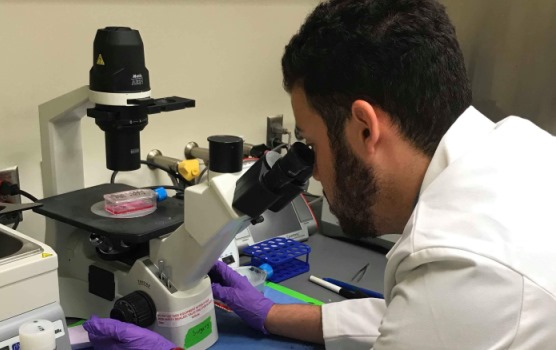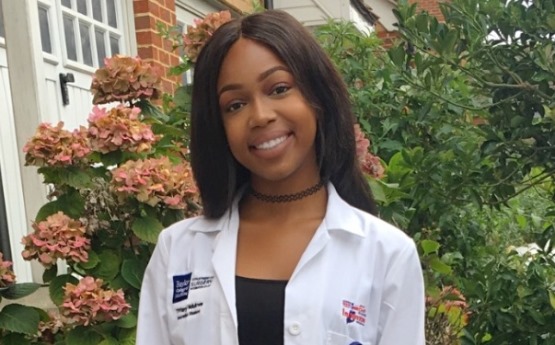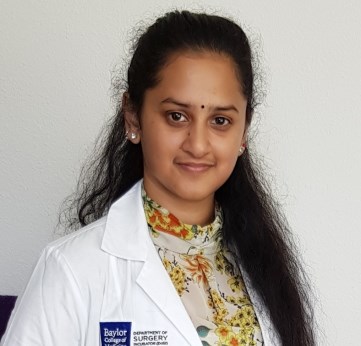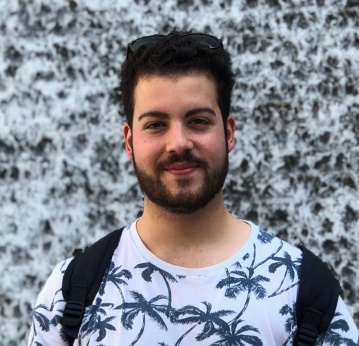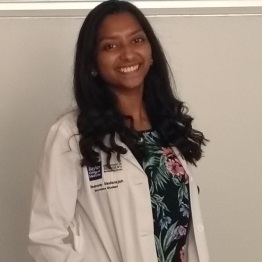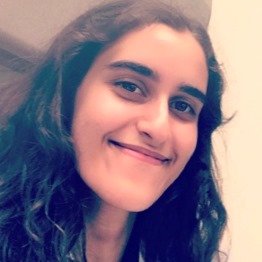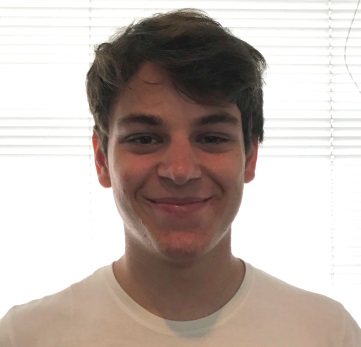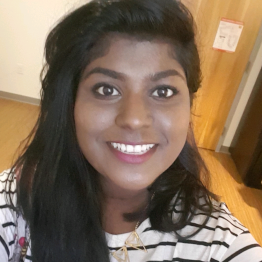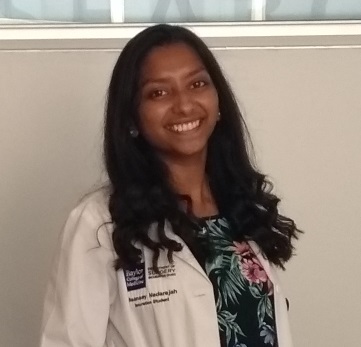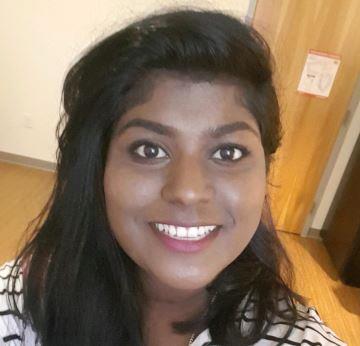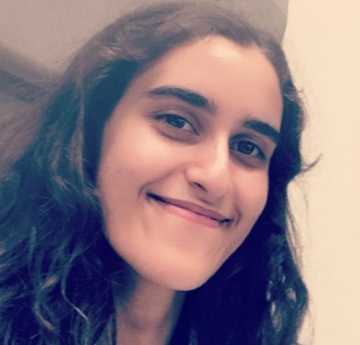2018 Summer Innovation Programme Participants and Staff
About the Summer Programme
A collaboration developed through the Texas Strategic Partnership allowed students from BSc Applied Medical Sciences to participate in a Summer Innovation Programme at Baylor College of Medicine.
They were hosted by the Department of Surgery's Interdisciplinary Surgical Technology and Innovation Center (INSTINCT) and were based in the Texas Medical Center, the world's largest medical complex.
Download our Applied Medical Sciences Texas Summer Programme publication
Read our Student Case Studies
At a Glance
- 6 weeks in the Texas Medical Center in Houston
- 24 participants since 2017
- Projects to develop new medical devices
- Surgery observations and simulations
- Clinical Shadowing and laboratory tours
- Think tanks and elevator pitches
- Over $20,000 R&D funding awarded
Preventing Pressure Ulcers
Students on the 2017 programme were asked to develop inspiring and cutting-edge solutions for the early detection, prevention, and improved management of pressure ulcers.
Their solutions included a novel dressings to promote faster wound healing and SETRESS, a pressure sensing and massaging mattress designed to prevent pressure ulcers forming.
These were entered into BCM's Innovation Challenge which is open to researchers, surgeons and physicians from across the USA. SETRESS was named joint winner, sharing the $25,000 R&D funds prize which allowed work on the project to continue.
Creating an Artificial Lung
In 2018 the students worked on a group project to develop a fully implantable, durable artificial lung as an alternative to ECMO (Extracorporeal Membrane Oxygenation) machines for patients awaiting a lung transplant or with conditions such as COPD.
This challenging project required them to create a device which would work within the thoracic cavity, and their proposed solution - to replace a lung with a device that would be connected to the airway, with an internal oxygenator - was presented to physicians and researchers at a 'Shark Tank' event at the end of the programme.
Opioid-induced Respiratory Depression
A device to reduce Opioid-induced respiratory depression (OIRD) was the focus of Tiffany Ndukwe’s individual project.
OIRD is a potentially devastating side effect of the opioid painkillers commonly used in hospitals.
Tiffany presented her idea - RESPIROID - in an elevator pitch competition at JLABS, the Johnson and Johnson Innovation lab located in the Texas Medical Center. She was awarded 1st place and her project received $5,000 R&D funds which allowed work on RESPIROID to continue with a view to prototyping and testing.
Maisy Nadarajah from Bournemouth
"I was attracted to the programme because of its location in the Texas Medical Center, the biggest medical complex in the world. I thought it would be an amazing place for me to build connections which would help in my future career.
I honestly expected that I would be fetching coffee or just shadowing people without really participating. In reality, however, it was the complete opposite: I was treated as an equal and was encouraged to speak my mind about ideas I or anyone else had.
The experience has made me much more confident in speaking to others, and my confidence in presenting ideas has also increased significantly."
Mary-Ellen Courtney from Swansea
"The best thing about my experience was shadowing a cardiothoracic surgeon. Our project aimed to improve current ECMO machines and procedures, and seeing patients currently on ECMO machines brought a new perspective.
This reality check was incredibly valuable: It allowed us to understand our supervisor's passion for this project and amplified our own as we could see how beneficial work in this field could be. It highlighted the power of medical innovation and research and why this sort of work is so unbelievably important. It humbles me that we were given the opportunity to not only see the current work ongoing at Baylor College of Medicine, but actually play a small part in one of their projects."
Constantinos Demetriou from Limassol, Cyprus
"We participated in activities such as a surgical simulation where we were trained on skills such as suturing and the endoscope use, think tanks, a mitral valve replacement surgery observation, and histology and lab work.
The experience exceeded my expectations by far!
The programme helped me cultivate a wide range of skills specific to the medical career that I want to follow as well as employability skills. Being encouraged to think out of the box challenged me and enhanced my critical thinking and analysis. I am now inspired to work harder and enlightened with new ambitions and goals."
Poornima Ramesh from Slough
"I was attracted to the programme as I am considering a career in medicine and research, specifically surgery and surgical techniques.
The experience changed me as a person: it made me more able to speak spontaneously, to lead, and prepared me for my next years of study.
I have been able to build strong networks with people in Texas which will help me in my future career.
It was an unforgettable experience which has helped shape the person I want to be."
Jemima Jones from Kidwelly
"The best part of the experience was the opportunity to work alongside and network with leaders in various fields of research and healthcare.
The chance to experience the Texas Medical Center - the largest medical centre in the world - was exciting and highlighted that problems in medicine are usually solved by engineering.
The programme developed my communication, time management, team work and networking skills, and I also learned new lab techniques, software and knowledge of engineering and physics. The experience helped me to become more independent and to improve my confidence in professional situations."
Theo de Rancourt from Paris, France
"I was attracted to the programme because of the opportunity to work in the biggest medical facility in the world, alongside researchers, surgeons and physicians.
We participated in workshops on nano-medicine and 3D bio printing, a simulation where we learned surgery techniques, and worked with Raspberry Pi and Arduino to learn how to code and better understand how medical devices are made and work.
The experience changed me as a person: I gained lab skills and have a better understanding of what it’s like to work in a medical facility. I also improved my skills in team work, how to give a professional presentation and how to communicate in a more scientific way."
Rukshikah Loganathan from Croydon
"I was able to develop skills in research, aseptic techniques, and cell culture techniques of pancreatic cancer cells that most first-year students don't normally get the chance to develop.
We had access to facilities such as 3D printing, RF room, prototype room, flow cytometry, cell culturing and splitting, and surgical simulations. We also observed a surgical oncology by Dr Steven Curley, Baylor College of Medicine's chief of oncology.
Meeting leading researchers and surgeons such as Dr Billy Cohn (Vice President for Johnson & Johnson Medical Devices Companies) and Dr Curley was inspiring, and that motivated me to work hard with a view to studying medicine in the future."
Lucia Rosellina from London
"I really enjoyed working on the group project, especially towards the end when all our ideas came together and we were able to design the final product.
The programme has given me a better understanding of the process of getting a product approved to be used in the medical market, and the challenges you face along the way.
The experience made me more confident and made me realise that it’s ok to ask questions and ask people for help."
Follow us on Social Media



